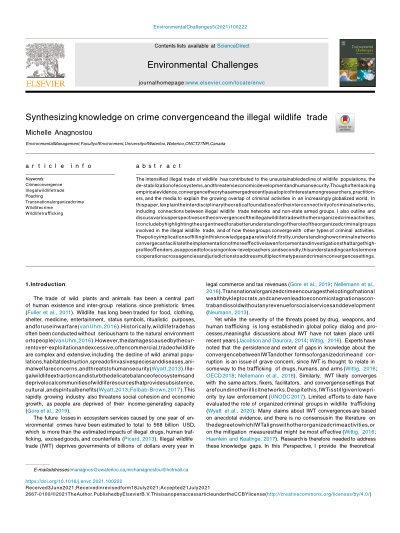Synthesizing knowledge on crime convergence and the illegal wildlife trade
By Michelle Anagnostou
The intensified illegal trade of wildlife has contributed to the unsustainable decline of wildlife populations, the destabilization of ecosystems, and threatens economic development and human security. Though often lacking empirical evidence, convergence theory has emerged recently as a topic of interest among researchers, practitioners, and the media to explain the growing overlap of criminal activities in an increasingly globalized world. In this paper, I explain the interdisciplinary theoretical foundations for the interconnectivity of criminal networks, including connections between illegal wildlife trade networks and non-state armed groups. I also outline and discuss various perspectives on the convergence of the illegal wildlife trade with other organized crime activities. I conclude by highlighting the urgent need for a better understanding of the role of the organized criminal groups involved in the illegal wildlife trade, and of how these groups converge with other types of criminal activities. The policy implications of filling in this knowledge gap are twofold: firstly, understanding how criminal networks converge can facilitate the implementation of more effective law enforcement and investigations that target high-profile offenders, as opposed to focusing on low-level poachers; and secondly, this understanding can foster more cooperation across agencies and jurisdictions to address multiple crime types and crime in convergence settings
Environmental Challenges. Volume 5, December 2021, 100222


